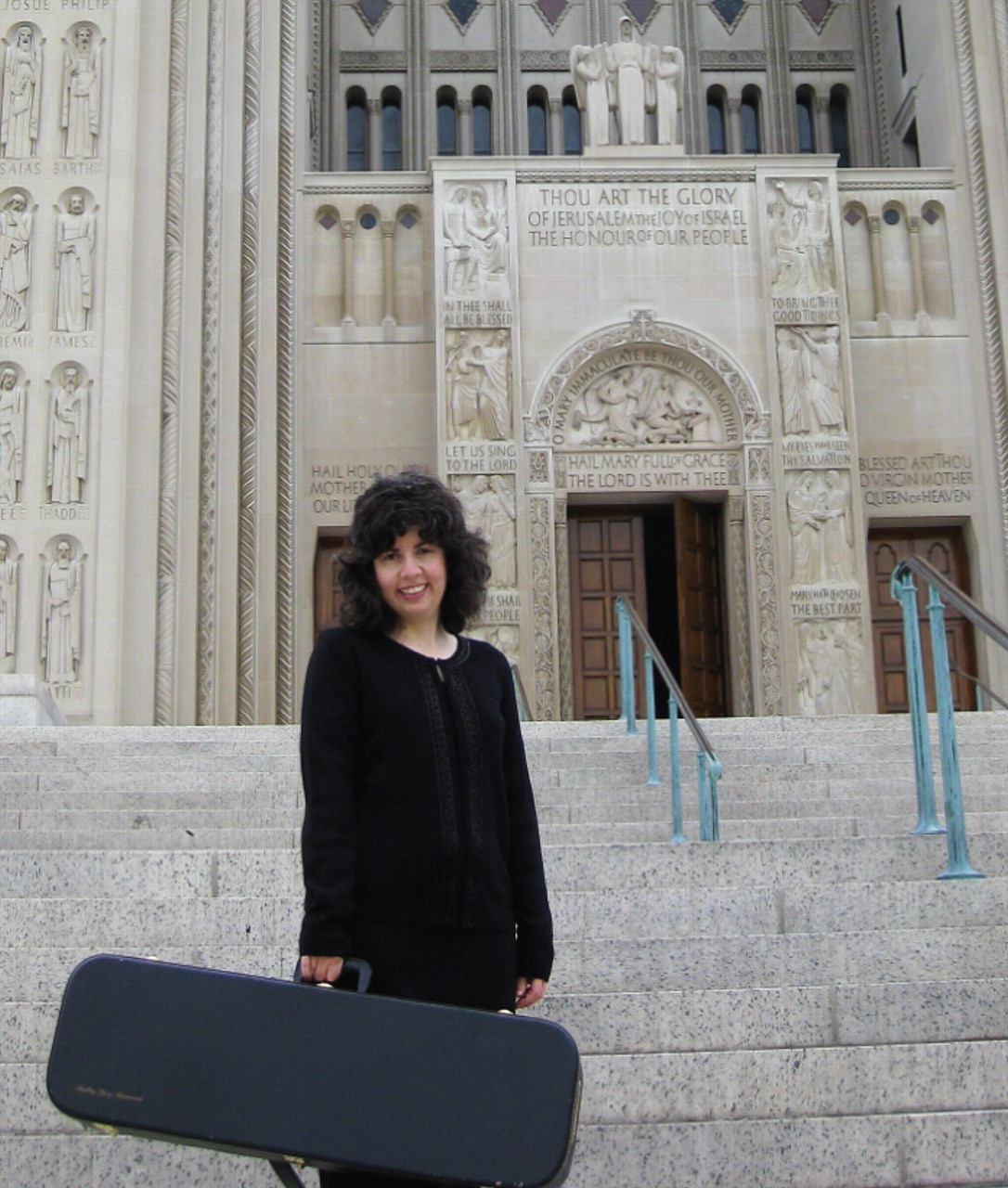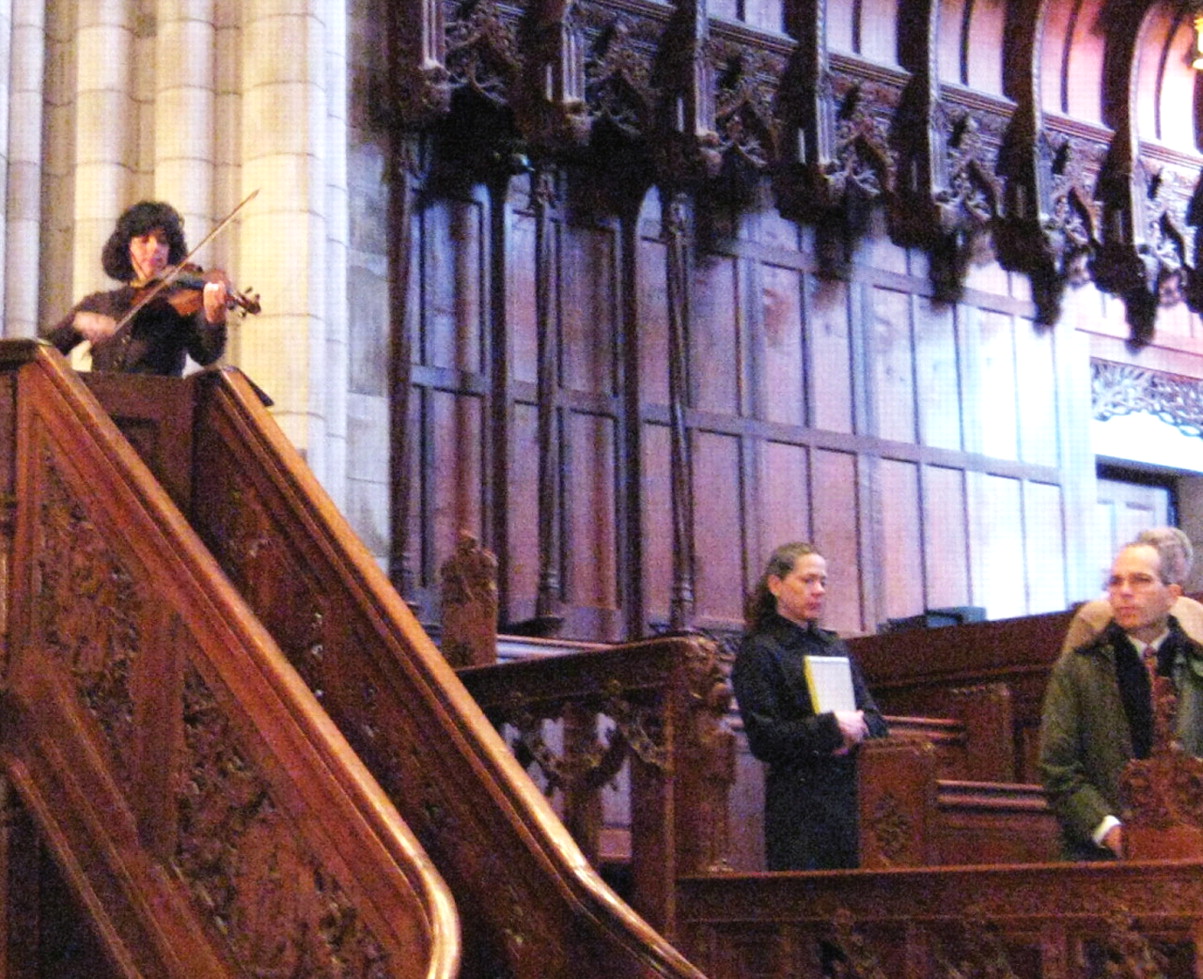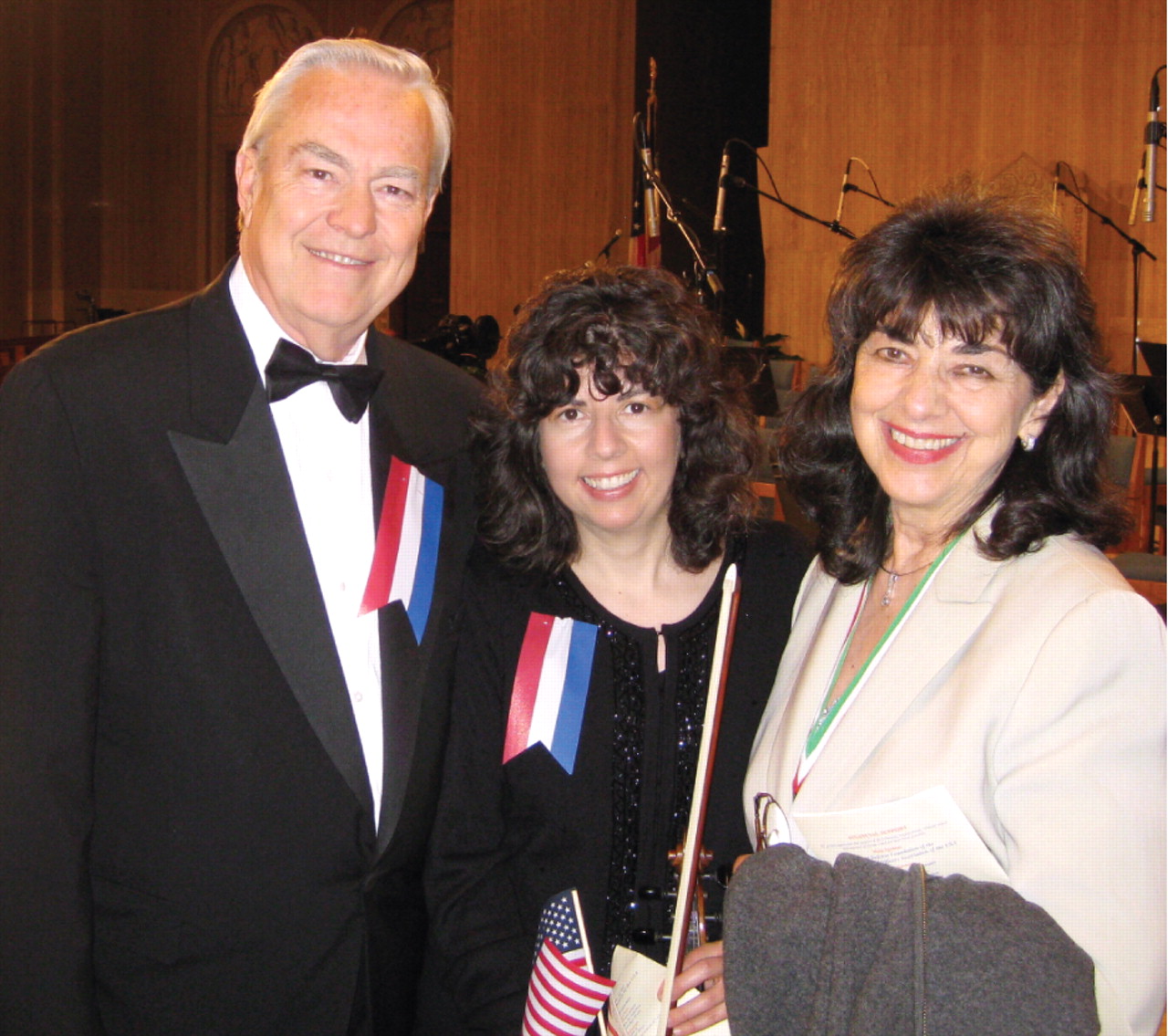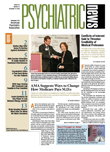For most psychiatrists, the healing of patients with mental health problems is accomplished with the help of certain clinical instruments, which may include diagnostic questionnaires, medications, and psychotherapy.
In the case of Department of Veterans Affairs (VA) psychiatrist Mary Rorro, D.O., two additional instruments are essential to her patients' well-being—the violin and the viola. On certain holidays her patients at the James J. Howard VA Outpatient Clinic in Brick, N.J., are treated to Rorro's poignant musical performances, which serve as a different form of therapy than they are used to.
“My music provides me with a different means of connecting with my patients, and it seems to be a transformative experience for them,” Rorro told Psychiatric News in a recent interview.
Since 2001, when she became a staff psychiatrist at the VA, Rorro has been serenading her patients with tunes ranging from “Auld Lang Syne” to “Silent Night” to the Beatles' “Yesterday.”
Rorro calls her program “A Few Good Notes,” and so far it has benefited only New Jersey-area veterans. However, Rorro is attempting to bring“ A Few Good Notes” to veterans across the United States and envisions musically gifted mental health clinicians around the country volunteering to play for patients at local VA hospitals.
Rorro attributes the success of her program to her combined passion for music and medicine.
She began playing violin at age 6 when her parents signed her up for lessons. She began playing the viola at age 15, and while in high school she performed in nursing homes and hospitals for patients who were dying from cancer.
At one hospital, she played for a terminally ill patient who had been practically silenced by depression for weeks, she noted. The man began to sing along with the carol she was playing, and the nurses standing by were moved to tears by the man's reaction, Rorro recalled. “That experience was very powerful for me,” she said.
Blending Music and Medicine
As an undergraduate at Bryn Mawr College, Rorro became president of the Bryn Mawr-Haverford College Orchestra and in this role organized two benefit concerts for St. Christopher's Hospital for Children in Philadelphia to benefit children with HIV/AIDS. Rorro comes from a long line of physicians—her father was a family physician who saw patients in his home office and also made house calls in Hamilton, N.J, where they lived.
In addition, she had grandparents, cousins, aunts, and uncles who were physicians, so it came as no big surprise to Rorro's mother when at age 4 she declared that she wanted one day to be a doctor, she recalled.
Her early love for music and medicine laid the foundation for her career trajectory. “I never wanted to relinquish either music or medicine, and I haven't,” Rorro said.
As a medical student at the University of Medicine and Dentistry of New Jersey, Rorro founded the program, “Musical Rounds: The Next Best Thing to Grand Rounds,” in which medical students and professors played musical instruments for hospital inpatients.
They also played for people being served at soup kitchens throughout Philadelphia as part of the “From Soup to Notes” program, also established by Rorro.
Giving Back to Veterans
For the past decade or so, Rorro has been playing her viola and violin for patients at the VA and noticed that her performances often strengthen the rapport she has with patients and can even speed emotional healing started through more conventional modes of treatment.
Said Rorro, “I think that many of the veterans have long-repressed emotions and memories that are brought to the surface when I perform certain songs.”
She also said that she has been told that after one of her performances, certain emotionally laden topics are brought up for discussion in group therapy, and the therapists then discuss these topics as they pertain to the patients' lives. “Some of the songs may remind them of buddies they have lost in combat or of a more innocent time before they went to war,” she added.
Recently, she has performed for wider audiences, including those at a Veterans Day observance ceremony at Princeton University and a program sponsored by the VA National Medical Symphony Chorale and Orchestra in Washington, D.C. She will also appear on a PBS special titled “Healthy Minds,” a 13-part educational series in its second season on New York's WLIW 21. Each half-hour episode humanizes a particular mental health condition through inspiring personal stories and discussions by clinicians and researchers who provide the latest information about diagnosis and treatment. The episode in which Rorro is scheduled to appear will be broadcast in the New York metropolitan area on February 8, 2009. In addition to her music, Rorro said some of her poems, which are inspired by her patients, will be featured on the special.
In 2009 Rorro hopes to benefit a greater number of veterans across the country but will need the help of her colleagues to do so. She is in the process of collaborating with the Give an Hour Foundation, which enables mental health professionals to donate an hour a week to provide services to military members returning from Iraq and Afghanistan, veterans, and their families (Psychiatric News, March 7). Give an Hour plans to match clinician musicians with local VA hospitals as part of the program, she said.
“It is such a privilege to be able to share my skills as a physician and as a musician with my veteran patients,” Rorro said. “I'm so impressed by their fortitude and courage and happy to be able to give something back to them.”
Information about donating musical skills to patients at VA hospitals can be obtained from Give an Hour by e-mail at<[email protected]>.▪



